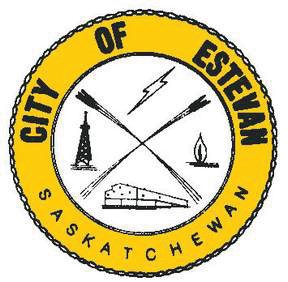Estevan’s bylaw enforcement officer has been busy. She has been so busy, police and some city councillors are wondering if she has enough time to give to all of the violators in the city, and if not, how many more rules are being broken.
After the position of bylaw enforcement officer was vacant for a period, the current officer Michelle Pickering began working in the post at the start of the year.
During last week’s regular meeting of Estevan city council, Coun. Kevin Smith, who sits on the Board of Police Commissioners, commented on his in seeing the City to pursue a second bylaw enforcement officer. The job is a busy one.
“The task is too large,” he said, for just one person.
Bylaws that have been targeted in particular are centred on parking in Estevan. Along with the other bylaw concerns like animal control, property inspections and general clean up, parking has been a major focus.
In October, there were 80 violations and tickets issued, which brings the 2014 total to 724 through the first 10 months of the year.
Littering, Smith said is a “chronic” problem in Estevan, and it’s an issue that could fall under the purview of bylaw enforcement. There just may not be enough time for one officer to enforce all of the rules.
City Manager Amber Smale said there haven’t been any direct talks regarding the addition of more bylaw officers. She said there would have to be a specific need identified in order to inspire analysis of those options.
“I’m not aware of our inability to currently enforce bylaws,” she said, noting the summer months are a busier time for one bylaw officer.
She said the matter is open to discussion but that it’s “premature” to say the City needs another officer. The comments so far, like those by Coun. Smith, have been off the cuff, she said. Of course, adding personnel is a challenge for a city that is trying to rein in and limit expenses the way the City of Estevan and city council have been trying to do and expect to continue doing.
There may be other avenues the City could take that would lead to greater enforcement without actually hiring a new person.
“Various pieces of legislation give council the ability to delegate some things to staff. If those things are properly done, they also have enforcement capabilities. For me, it’s about maximizing your current resources before you determine new ones are needed,” said Smale.
Estevan Police Chief Paul Ladouceur noted bylaw enforcement isn’t a moneymaking business, though it is a way to bring some revenue back to the City. The costs of an officer aren’t necessarily covered by revenue from the fines of rule breakers. There are a lot of costs beyond salary that come into the fold.
The officer must be outfitted, provided with a vehicle that must be fuelled and maintained.
“One of the issues isn’t so much that there is a huge increase (in violations) necessarily, I think the fact is that one person can only do so much,” said Ladouceur.
He said many people think a bylaw enforcement officer’s main job is that of a parking meter reader. The chief of police said there’s quite a bit more to it, and time is taken up by other complaints and issues along with court appearances when an infraction is disputed.
Still, in Estevan, it’s the parking violations that are the most mountainous.
“I think it’s complacency, because if I go to Regina, and I park illegally, it costs me quite a bit in parking fines. Our parking fines are very low,” said Ladouceur.
He said the City’s rates could be explored, and Smale agreed that’s something that cities should be regularly addressing. Though the chief noted the purpose of fines isn’t to profit the City, but rather to prevent the actions and cover the costs of enforcement.
Smale said rates for fines are looked at regularly by a city, often every three to five years. “The review of something like that is never off the table. Cities always need to be looking at their revenue sources to make sure they’re at least recovering cost, at minimum,” she said.
She noted there has been some discussion about a traffic bylaw review, though there aren’t immediate plans for a one.
Ladouceur isn’t suggesting rushing into the hiring process for another bylaw enforcement officer, but he is advocating having the conversations about what sort of benefits and pitfalls there would be.
“It’s wise to at least explore it,” said Ladouceur. “I think we have to look deep into the benefits of it and the costs behind it.”
While there may not be a new bylaw enforcement officer on the immediate horizon, the issue of bylaws – who enforces them and what do rule breakers pay – may receive more attention by the City.



